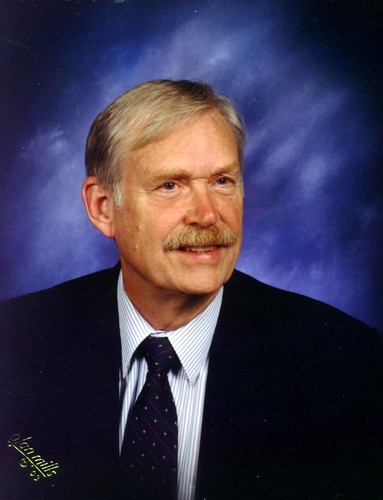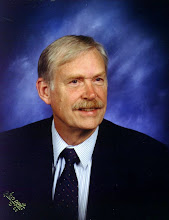Writing is not all agony. I write things like this for fun and then send them to a friend, Leland Meitzler, so he can post them on his blog. Besides, they don’t require a lot of research. That work has already been done years ago when I compiled a genealogy. The thing for you readers to remember is that they are all true. Leland’s Blog is very informative and can be found at
http://www.genealogyblog.com/
Don’t Dig Up the Past!
Maybe it is just my family that has problems, but probably not. I just know that I have been warned not to dig up the past by very serious cousins. On more than one occasion and on more than one family line. Of course, reasons were not offered (that would ruin the fun of making the warning).
I have never agreed to stop turning over rocks and looking under them. I just couldn’t agree when I did not know what was hidden there waiting for me to find. In fact, I was spurred on by such warnings.
Of course I found ugly things, especially surrounding the reputations of those who were murdered. That is because it was necessary to blacken the names of those who were about to die. You see, if a murderer went to trial, it was helpful to have killed a bad guy. Juries understand bad guys. Lawyers love to try the victims instead of the perpetr ators. Researchers have to learn to overlook purposeful blackening of names, especially when the victim was involved in a worthy purpose such as interfering with the KKK.
Do you know how the KKK was tracked down in rural areas in 1874? The deputy US Marshall went to retail shops and found out who was selling white sheets. And then he found out who was buying those sheets. Killers who hide under white sheets in the cover of night probably are not good judges of character, and when they are the ones spreading the stories about someone else, you can take those stories with a grain of salt.
When I began researching, I didn’t know who in my family was a good guy and who was not. I just dug until I found the facts. If I found evil people, that is what I reported. If I found good people (or, “just not bad” people), I would report that as well. Mainly, I found what type of enemies an ancestor had. By learning about his enemies, I could get a grasp on my ancestor’s character.
But I will admit that I tend to think the best of someone until I learn differently. After all, saints and sinners abound in this world and have done so for thousands of years. There seem to have been more sinners than saints, making the search for holy folks take a little longer than the search for us ordinary types.
Now that I mention it, I do not recall anyone in my family who could qualify as a saint. There were a few ministers and one who was both a doctor and a minister. He was in St. Charles, MO in 1809-1811 when the biggest quakes in the US hit the Midwest and I don’t know if he uttered one cuss word. That might qualify him for sainthood. I didn’t look at him as a saint, however, but as an entrepreneur. Because he was both a doctor and a preacher, he made money when people were coming and going. Smart man, but not necessarily a saint.
And there was my cousin Jefferson Davis Grover (b. 1861and named for a Southern Saint) who was described by female cousins as the “handsomest man in the world.” He died in 1925 in rather odd circumstances as told by his third wife. He would not be a candidate for sainthood, either, unless you listened to his girlfriends.
There was a cousin, once, whom family members talked about in quiet whispers. It seems her mother was not married to her father, but everyone knew about her birth. Of course, she was properly ostracized. I have tried to locate this cousin who in my mind had no control over what her parents did. I always felt she was treated rather shabbily. She seems to want nothing to with the rest of us for some reason. I can’t say I blame her. To the best of my knowledge she has not taken a shot at any of us. Maybe she is more of a saint than any of us realize.
Digging up the past is fun, as long as no one is hurt by it. To this day, I have no idea why my cousins advised that I not research the family. Maybe they heard something I missed. Most likely they believed something that on the truth scale, ran between zero and one-half. Maybe it made them feel important to be the sharer of family secrets.
Wednesday, April 14, 2010
Monday, April 05, 2010
No Messages by Me from Beyond the Grave

I am still writing posts for the blog of my friend Leland Meitzner, the genealogy guru at http://www.genealogyblog.com/. Here is one that is self-explanatory:
Beyond the Grave
Filed in Thomas Fiske articles on Apr.05, 2010
Another amusing article by my friend, Tom Fiske:
I saw an Internet article titled “Texting from Beyond the Grave.” New technology allows a person to embed a chip in his or her granite tombstone that can be excited by telephones in the future so that a dead person’s typed message can be read out. Maybe a photo, too…
And I thought, “Some people just can’t let go.” But I also wondered if I were to leave such a statement, what my last message to the world might be. Would it be something like, “I told Evie I was sick…” or “Love your neighbor,” something that has been done much better and more often in the Bible. I just do not know. I doubt it would be one of those silly items that people send each other on the Internet each day—you know, one of those stories that is simply too cute to pass up, so you have to send the drivel on. Finding the right message would be a tough decision.
One day in 1944 in middle school a teacher had a boy by the name of Gilbert Lutz stand beside him in class. He commended the boy on his ability to carve. It seems the kid had boldly carved his name in a wood toilet seat in the boys’ bathroom. The teacher finished his special address to the carver by saying, “Of course, if that is where you want your name for all the world to see, you certainly have made your mark on the world.” I heard later that his parents were forced to replace the seat. We students wondered if Gilbert was allowed to keep the old seat so he could frame it and hang it on his wall at home.
So these new granite/electronic tombstones carry with them a great responsibility. But we genealogists can forget about them (and unadorned toilet seats, too) because we are already leaving powerful messages behind. Just a short list of a few generations would do, but many of us are also writing about our lives and the lives of our parents and even their parents. Most of these are monumental tales of proud, inner-directed folks.
I recall a Jewish lady who went to Poland in search of her ancestors. She was directed to a German Concentration Camp where her ancestors were put to death. Hers was a poignant story of bravery and destruction that carried with it a reminder of what can happen when we do not watch our political leaders very, very carefully.
My family was not Jewish (that we know of) but it consisted of soldiers in various wars. One was a corporal under Daniel Boone and General George Rogers Clark around 1784. He was not a big-time hero, but his deeds and deeds of those with whom he served, helped form this country. Those were the days when both mom and dad had to be good shots with a long rifle. Some of my people were Indians as well, so I came from a vast collection of shooters and shootees. They had very instructive tales to tell and I am writing them down as well as I am able.
You may choose a different course, but I believe I will forgo the granite messaging service, but will let my genealogy be my testimony, and my message for future generations.
Maybe I can’t let go either.
Labels:
Daniel Boone,
George Rogers Clark,
Leland Meitzner,
tombstones
Subscribe to:
Posts (Atom)

